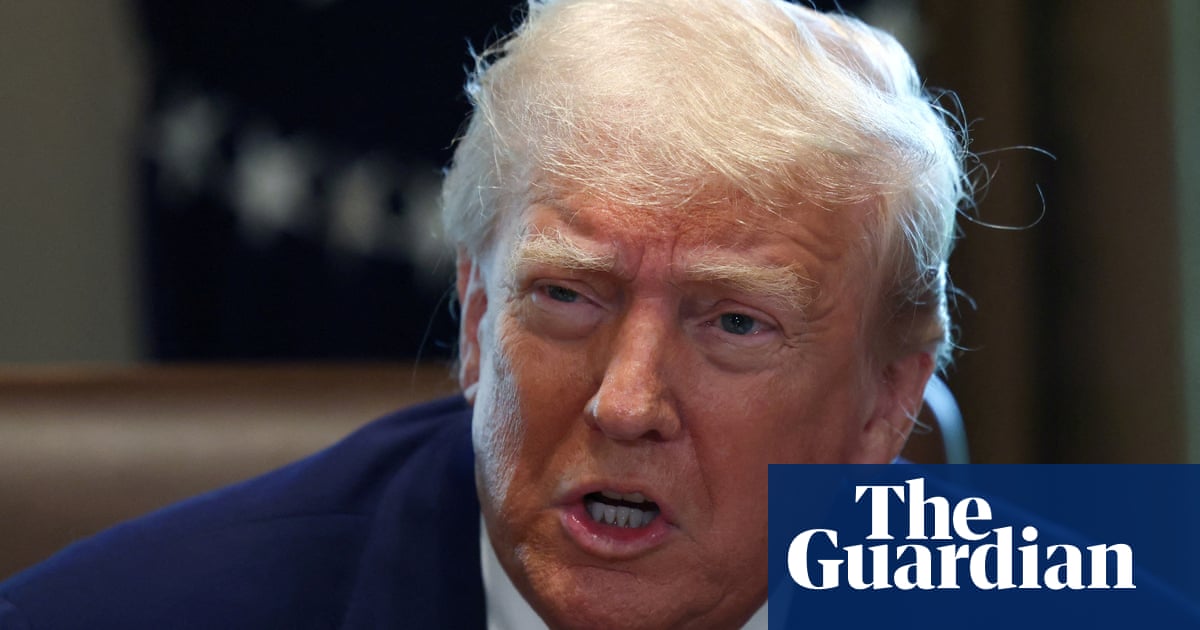Donald Trump would not rule using military force to gain control of Greenland, the world’s largest island and an autonomous territory within Denmark, a fellow Nato member with the US.
Since taking office, the US president hasrepeatedly expressed the ideaof US expansion into Greenland, triggering widespread condemnation and unease both on the island itself and in the global diplomatic community. Greenland is seen as strategically important both for defense and as a future source of mineral wealth.
In an interview on NBC’s Meet The Press on Sunday, Trump was asked whether he would rule out using force against the territory.
“I don’t rule it out. I don’t say I’m going to do it, but I don’t rule out anything. No, not there. We needGreenlandvery badly. Greenland is a very small amount of people, which we’ll take care of, and we’ll cherish them, and all of that. But we need that for international security,” Trump said.
The exchange came as part of wide-ranging interview following Trump’s first100-days in officelast week and he was also asked about the idea of using military force againstCanada– an idea once unthinkable but now a subject of speculation amid Trump’s repeated assertion he would like to make Canada the US’s 51st state.
“It’s highly unlikely. I don’t see it withCanada. I just don’t see it, I have to be honest with you,” Trump said.
Trump said he had spoke with Canada’s new prime minister,Mark Carney, and confirmed that the pair had not spoken about making his country part of the US.
But he said they could discuss the topic when Carney visits Washington DC “this week or next week”. Carney, along with around 90% of Canadians, oppose the idea of folding Canada into the US. But Trump said he was open to a discussion.
“I’ll always talk about that. You know why? We subsidize Canada to the tune of $200bn a year,” Trump said. “We don’t need their cars. In fact, we don’t want their cars. We don’t need their energy. We don’t even want their energy. We have more than they do. We don’t want their lumber. We have great lumber. All I have to do is free it up from the environmental lunatics.”
Sign up toThis Week in Trumpland
A deep dive into the policies, controversies and oddities surrounding the Trump administration
after newsletter promotion
Trump said that if “Canada was part of the US it wouldn’t cost us. It would be great … it would be a cherished state. And, if you look at our map, if you look at the geography – I’m a real estate guy at heart. When I look down at that without that artificial line that was drawn with a ruler many years ago – was just an artificial line, goes straight across. You don’t even realize.”
“What a beautiful country it would be,” he added.
A poll published last month found that 68% of Americans believe Trump is serious about the US trying to take over Greenland, and 53% think Trump is serious when he talks about the US trying to take control of Canada.
But the survey,commissioned by ABC Newsfound that respondents didn’t think either annexation would be a good idea. About 86% said they opposed the US trying to take control of Canada, and 76% opposed trying to take control of Greenland.
